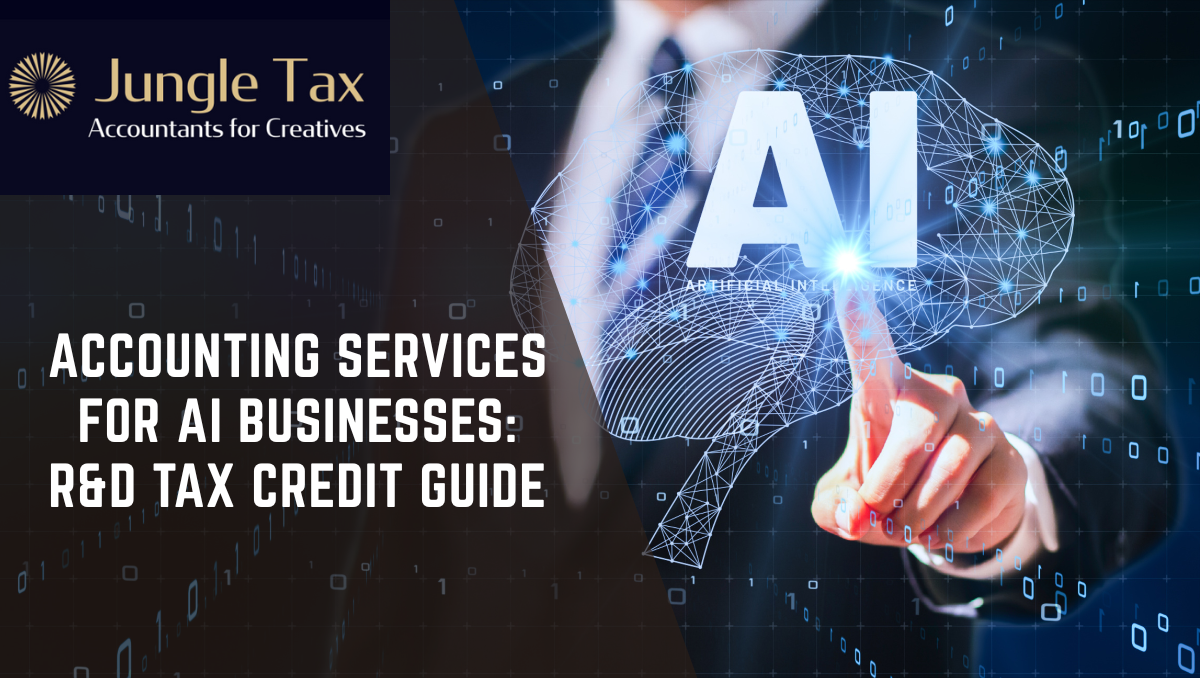
The rapid rise of artificial intelligence has sparked a new era of innovation — and with it, complex financial challenges. If you run an AI startup or scale-up, managing finances can feel like navigating a maze of algorithms, especially when it comes to claiming R&D tax credits. This is where professional accounting services for AI businesses become indispensable. They not only help you stay compliant but also ensure you claim every penny you deserve for your innovation.
Understanding R&D Tax Credits in the AI Sector
R&D tax credits are one of the UK government’s most powerful incentives for innovation. They allow businesses investing in new technologies, algorithms, or data systems to reclaim a portion of their qualifying research expenses.
For AI startups, eligible costs often include software development, machine learning model training, and data analysis tools. Yet, identifying and documenting these costs accurately requires financial precision — something an AI-focused accountant from JungleTax can handle with ease.
Let’s consider a real-world example. A London-based AI company developing natural language processing tools for healthcare claimed £120,000 in R&D tax relief after their accountant identified overlooked staff and cloud computing costs. Without expert guidance, they might have missed out on this massive financial boost.
Why AI Startups Need Specialised Accounting Services
AI businesses operate differently from traditional companies. Your assets may not be physical — they’re often intellectual, digital, and evolving fast. General accounting firms may not fully grasp your business model or accurately categorise R&D expenses.
Specialised accounting services for AI businesses know how to evaluate the financial impact of your experiments, failed prototypes, and data processing costs — all of which can qualify for tax credits.
An accountant experienced in AI company tax planning can:
- Identify all eligible R&D expenses
- Prepare accurate technical reports for HMRC.
- Prevent compliance errors that trigger an audit. Maximise your tax efficiency while maintaining transparency.
This expertise ensures your startup remains financially agile while reinvesting savings back into innovation.
The R&D Claim Process: Step-by-Step
Filing for R&D tax credits isn’t just a checkbox exercise — it’s a strategic process. Here’s how it works:
- Identify Qualifying Projects – Examples include AI model optimisation, natural language generation, and automated system development.
- Track Eligible Costs – Include salaries, subcontractor fees, and consumables.
- Prepare Technical Documentation – Explain how your project advances AI technology.
- Submit to HMRC – Attach detailed financial and technical reports.
Each of these stages benefits from professional support. JungleTax accountants analyse your research timeline, validate eligible costs, and present a straightforward narrative that aligns with HMRC standards — helping you avoid rejection or delays.
Maximising Tax Efficiency Through Smart AI Accounting
Practical accounting for AI startups goes beyond R&D claims. It’s about aligning your entire financial structure with tax-smart strategies.
For instance, setting up a group structure can help separate intellectual property (IP) from operational risks. Tracking capitalised development costs accurately ensures long-term savings when your business scales or seeks investment.
An example: an AI analytics company in Manchester reduced its corporate tax bill by 30% after JungleTax restructured its expense reporting and guided its R&D claim strategy.
By combining R&D tax credit for startups expertise with long-term financial planning, accountants help AI founders turn complex tax regulations into growth opportunities.
Common Mistakes AI Startups Make in R&D Claims
Many founders assume only large corporations qualify for R&D relief. In truth, even small AI teams working on machine learning models, predictive algorithms, or automation tools can make significant claims.
Other common errors include:
- Poor documentation of research progress
- Underreporting developer and cloud costs
- Mixing operational and R&D expenses
- Relying on generic accountants without tech expertise
These mistakes can lead to rejected claims or reduced benefits. With an expert partner like JungleTax, you can maintain accurate financial records and identify every eligible claim area.
Choosing the Right Accounting Partner for Your AI Business
Your accounting firm should do more than balance books. It should understand how AI drives innovation and profitability.
When evaluating accounting services for AI businesses, look for:
- Proven success with R&D tax claims
- Familiarity with AI-related costs (data labelling, computing power, software development)
- Ability to scale financial strategies as your company grows
- Transparent communication and data-driven insights
JungleTax specialises in working with AI founders, ensuring you stay compliant, efficient, and ahead of competitors in an ever-evolving market.
The Future of AI Accounting and R&D Tax Relief
The UK government continues to evolve its R&D incentive programs. In 2025, the unified R&D scheme simplified eligibility but tightened compliance requirements. That means precise documentation and expert financial reporting matter more than ever.
AI businesses that invest early in strong financial infrastructure will gain a competitive edge. By pairing innovation with expert accounting, you safeguard your intellectual assets and prepare for scalable growth.
Conclusion: Innovation Deserves Reward
Innovation should never be penalised by poor financial management. With the right accounting partner, your AI company can maximise every available incentive while maintaining transparency with HMRC.
At JungleTax, we specialise in accounting services for AI businesses — helping founders like you transform complex tax processes into profit-boosting strategies.
For expert help with your taxes, contact JungleTax today at hello@jungletax.co.uk or call 0333 880 7974.
FAQs
Qualifying expenses include staff costs, software, subcontractors, data processing, and cloud computing used directly in R&D activities. Proper documentation is key to successful claims.
Accountants identify eligible projects, calculate qualifying costs, and prepare detailed technical reports for HMRC — maximising your refund while ensuring full compliance.
Yes. Even early-stage startups developing AI models, data tools, or automation systems can claim R&D tax credits if they demonstrate technological advancement.
It’s best to review it annually, especially before submitting financial statements. Regular reviews help capture all qualifying costs as projects evolve.
JungleTax combines deep AI industry understanding with expert financial strategy. Their team ensures maximum R&D claims, transparency, and compliance at every stage.
